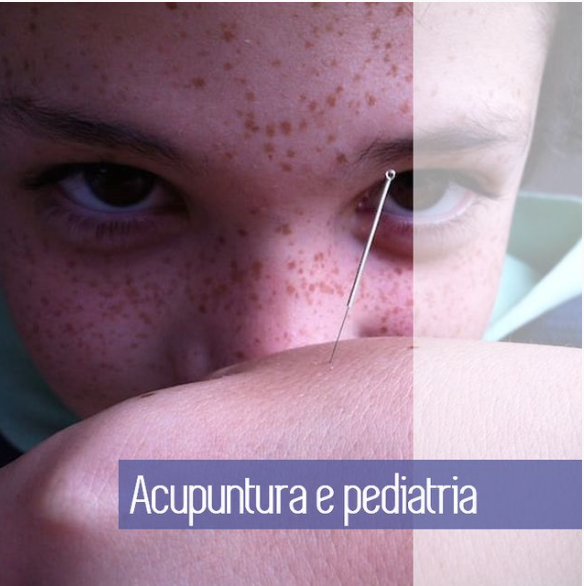Good morning readers! 
Today I will write a bit about Acupuncture in Pediatrics. What are the differences between adults and children/teenagers? What should we consider normal? What should we treat?
When we receive in our offices a child or a teenager (remember that in Chinese Medicine are considered children until 12 years old and between 12 and 18 we consider teenager), we must know exactly what’s the physiological difference in people that lay in this age range comparing to an adult, and thus only consider what’s normal and what’s pathological, as shown next:
1) Children/ Teenagers have Yang Excess in Heart and Liver.
1.a) The elevated Heart Yang makes children and teenagers more anxious, curious, and easily lose coherence in relation to how they should act in certain situations. Sweating more, having an elevated heart rate. Sleep is agitated and scares are more frequent. Some say we should never scare a child, so that we don’t create trauma in the heart. Keeping the attention and stillness of a child or a teenager, as like in a classroom, is a really hard mission, once that, it’s a natural behavior for this age group to “discover the world” and not remain focused 100% of the time. From this, we can see how many children are treated wrongly, diagnosed with attention deficit and other similar problems.
1.b) The elevated Liver Yang makes children and teenager more irritable, impatient, and stubborn. Start to have strong headaches when undergoing the changes caused by adolescence, mainly on the back of the eyes and the side of the head. Dream too much, have nightmares, feel growing pain. In Chinese Medicine the Liver is the one that controls the “animal extinct”, thus, when in excess children and teenagers may become extremely violent.
** Regarding excess problems, how should we proceed?
We must only treat a child or a teenager due to excess when those are badly affecting their day to day lives. Example: when a child cannot sleep caused by having too many nightmares, or when the lack of attention in school is affecting colleagues or grades or even when they become aggressive towards colleagues or teachers.
In the cases where Liver Yang, naturally elevated, becomes higher than it should, it’s possible, using acupuncture, to treat the behavioral problems, thus making it so that the person becomes clearly calmer and patient.
For Heart excesses, the most used points are: HT5, HT7 and for Liver excesses, it’s common to use the points LV2 and LV3. In both cases, it can be combined with other treatment points.
2) Children/Teenagers have Qi Deficiency in Liver, Lung and Spleen.
2.a) Kidney is the organ that commands growing and development. Children and teenagers are constantly “spending” Kidney energy to develop, and the overload exercised upon this organ makes him goes Deficiency (energy). In this stage, then, the child/teen feel sleepy, lazy, developing teeth problems, as well as easy-solving fractures. If Kidney energy is even smaller than what’s considered physiologic, the child/teen will present growing problems, such as dwarfism, cretinism, bone growing failure, mental problems and more.
2.b) The Lung is the organ responsible for immunity in Traditional Chinese Medicine. Since immunity is developing in the child/teen until 12 years old (average), the organ is also overloaded, therefore, diseases like flu, colds, sinus inflammation, respiratory or skin allergies are also very common in this age group. The respiratory diseases during this stage easily become severe, however with a fast and effective interference, are easily healed. Acupuncture is efficient not only in pathological states, but also in increasing the immunity and preventing diseases, having a huge positive impact in allergic rhinitis.
2.c) The Spleen in children/teenagers is in adaptation since birth, when the baby stops feeding from mother’s milk and starts including new foods to its diet. It’s also responsible for the growth of the digestive tube matching with height changes, this makes it overloaded. The Spleen, in Chinese Medicine, is responsible for removing humidity from the body (fluids that aren’t used in normal physiologic functions) and when it’s overloaded, it stops removing these fluids, causing them phlegm formation, that basically are masses distributed over the body. These masses, many times not visible to naked eye, can induce headache, hunger sensation without eating readily, nausea, vomit, digestive and intestinal problems with diverse symptoms, fever that doesn’t stop with transpiration, weight gain and memory loss. Acupuncture is very effective when we are talking about strengthening Spleen, making the digestive process much more effective and improving memory (including studying). Spleen is also responsible for anxiety, and if well done, improves concentration, memory, and calms the mind in order to get a good test grade, such as, SAT.
To treat Kidney Deficiency, it’s common to use the points KI3 and KI6. For Lung Deficiency we use points LU7 and LU9 (and few others, depending on the symptoms) and for Spleen, SP1, SP3, SP6, and SP9 are the most common ones, being SP3 considered the target point for memory improvement.
Therefore, finding a child/teenager anxious, irritated, lazy, indigestible and with bad memory does not mean they are sick, however all of this, is part of an adult life transition period. What we must do is do a maintenance in health and never let any of the “normal” symptoms exacerbate and prejudice the natural development of the said person. Preventing/diminish the pathological excess, nourish anormal deficiencies, are the mission of a good acupuncturist in order to take good care of this unique age group.
I hope that you liked it!
A big hug!!
Profa. Fernanda Mara